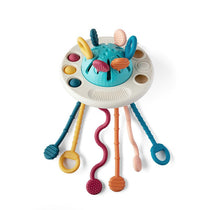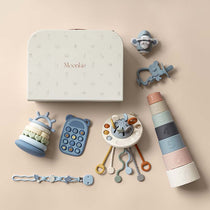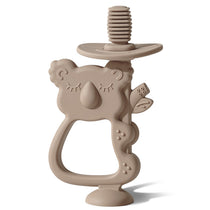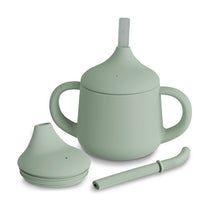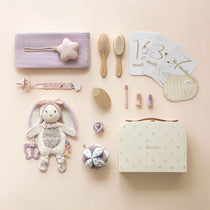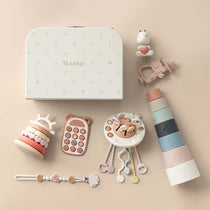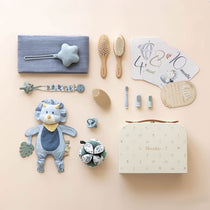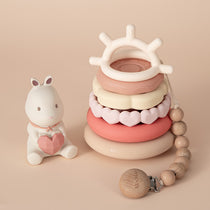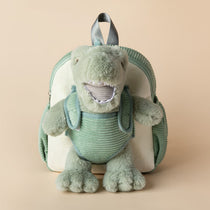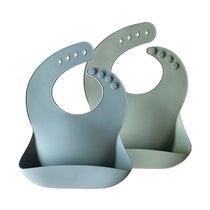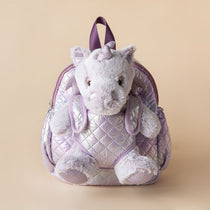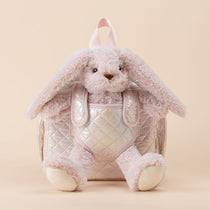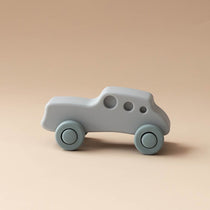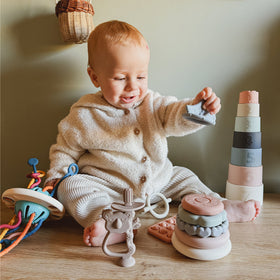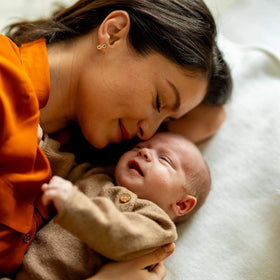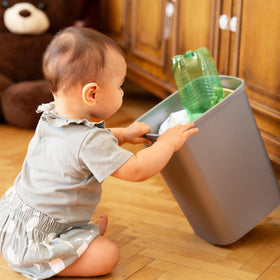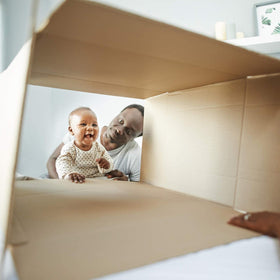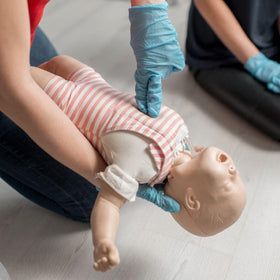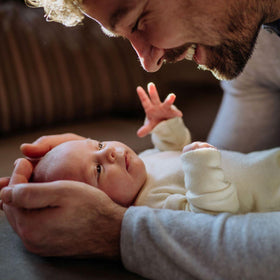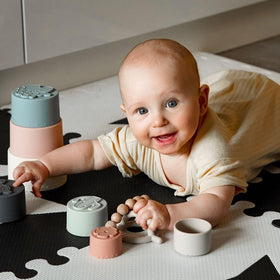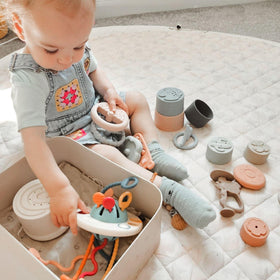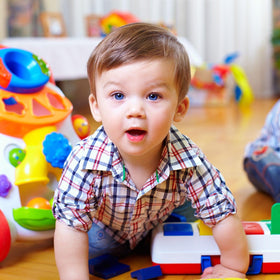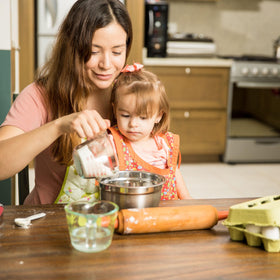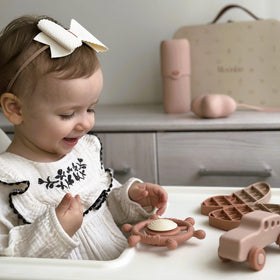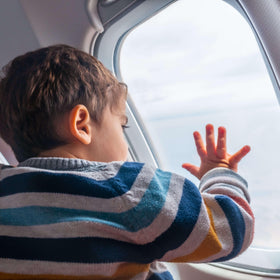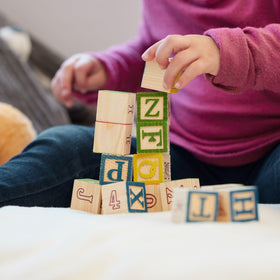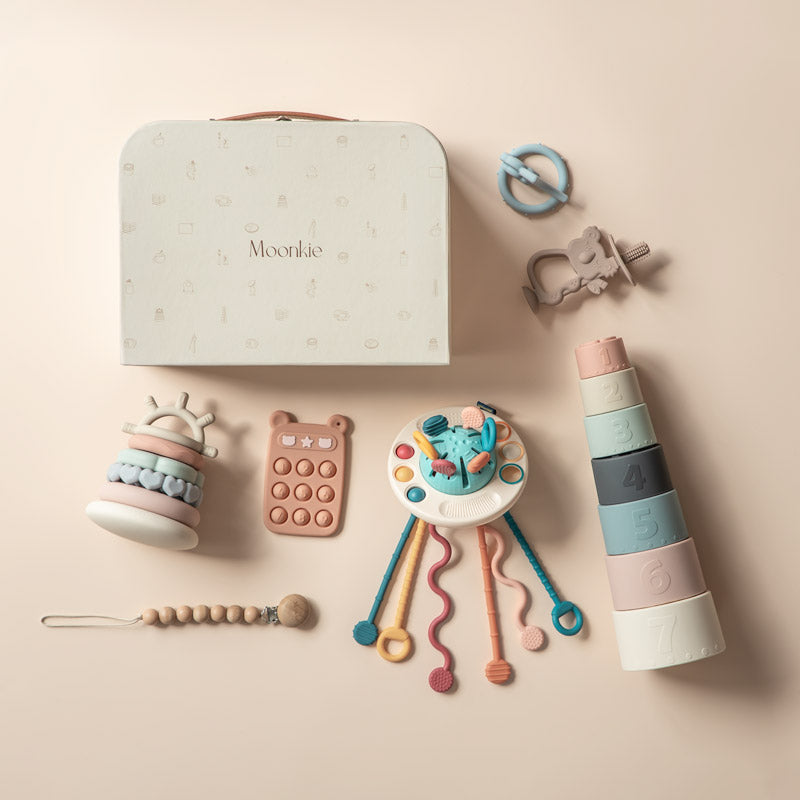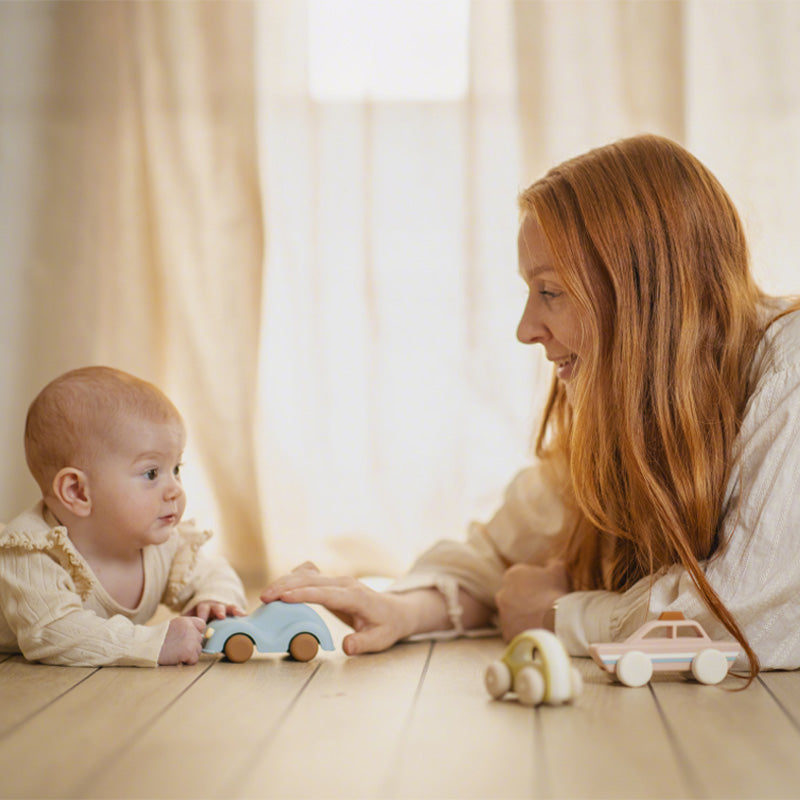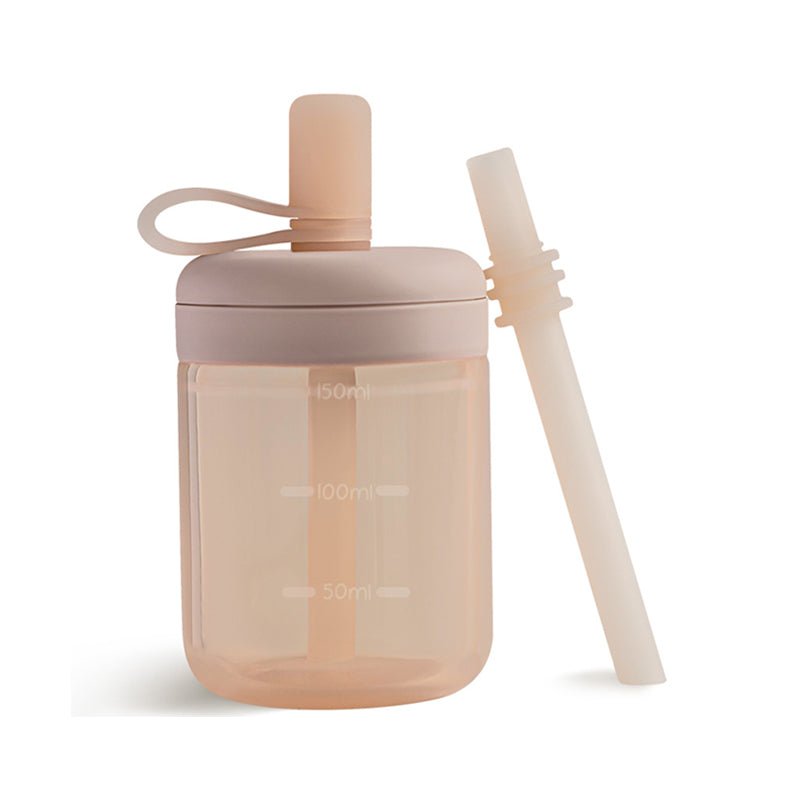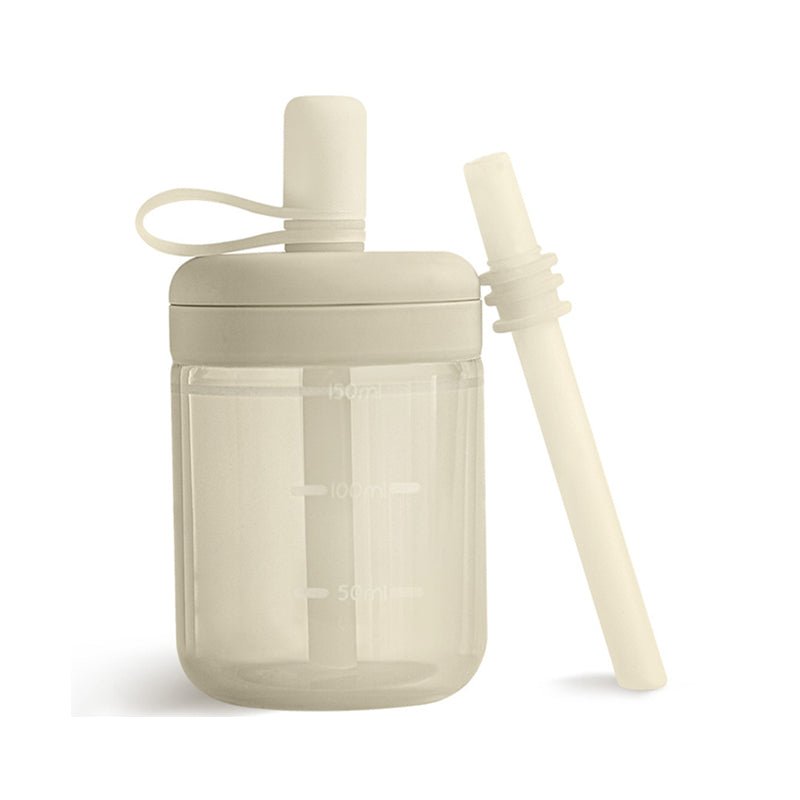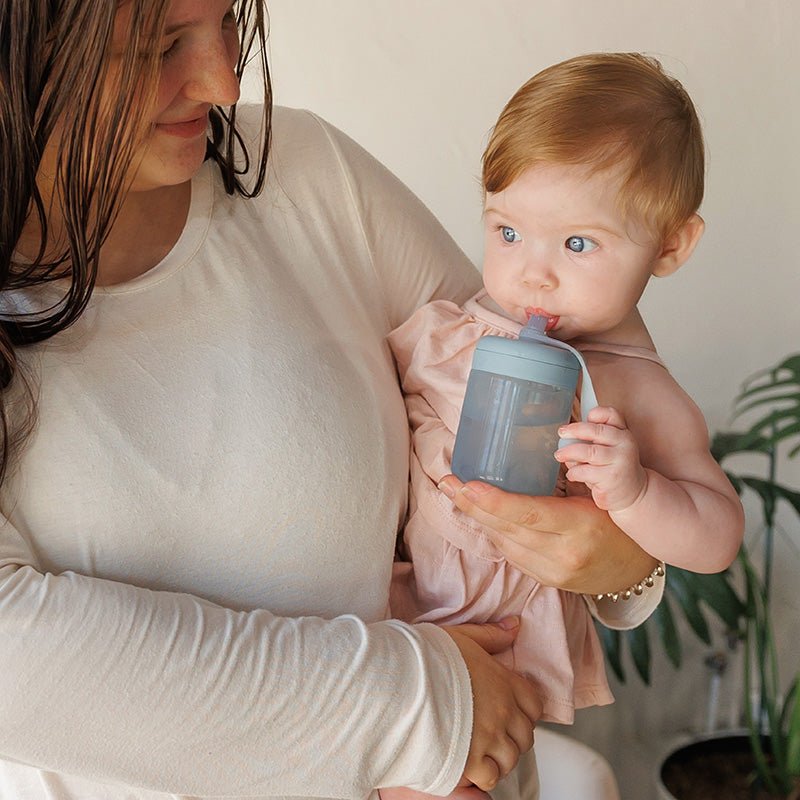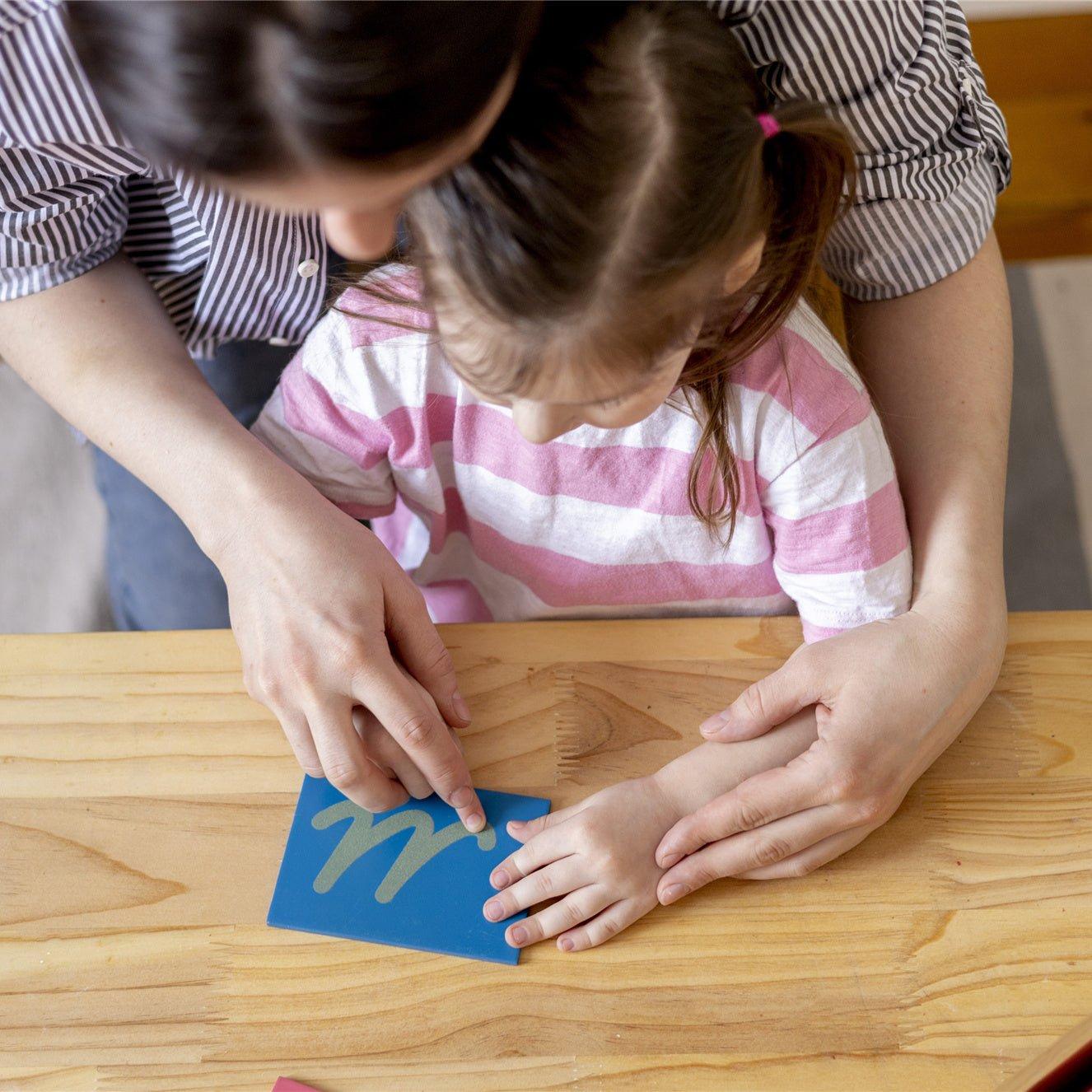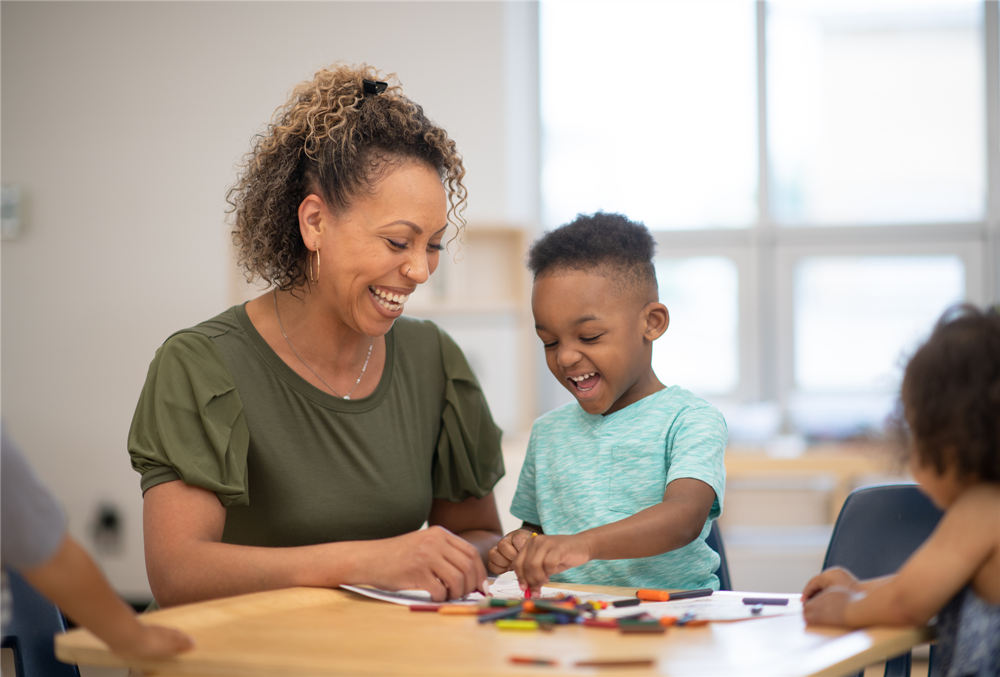
Feeling anxious about providing your little one with a solid foundation for learning and growth? That's where the Montessori philosophy comes in. But why does this approach work, and how can you make it work for your family?
Developed over a century ago by Dr. Maria Montessori, the Montessori approach to education emphasizes hands-on learning, child-led exploration, and a focus on practical life skills. Essentially, the Montessori method is based on how babies, toddlers, and kids learn instinctively.
In this article, we will peer deeply into the Montessori philosophy and explore its benefits for parents and children alike. We'll then list some ways you can build it into your home routine and compare it to the Waldorf method (a well-known alternative).
What is the Montessori Philosophy?
At its core, the Montessori philosophy is all about respecting the child. Dr. Montessori believed that each child is unique and capable of learning and growing in their own way and that it's the role of the teacher--or parent--to create an environment that supports and encourages that growth.
Montessori principles are based on the work of Dr. Maria Montessori, an Italian educator and physician who developed her approach to education from 1897 to 1907.
In 1907, she successfully applied it to a group of underprivileged children in Rome, which led to more schools in Italy and further research for older kids (source). Having met success with young children through to eleven years old, Dr. Montessori shifted her focus to how teenagers learn best in the 1920s.
Her methodology's principles were the same for teenagers, but the application involved engaging in real-world activities like crafting handmade products and farming while operating in a trusting community for a human interdependence experience.
Dr. Montessori believed that teenage students would learn to live in society positively and competently through such experience (source). How neat is that?
Key Principles of the Montessori Philosophy
Dr. Montessori believed that children are natural learners capable of directing their own education if given the right environment and guidance. Though this seems like a lot of pressure on parents and teachers, it is quite freeing!
Here are some of the key principles of the Montessori philosophy:
1. Respect for the Child
Montessori educators believe that each child is unique and deserves to be treated with respect and kindness. This means listening to the child, valuing their opinions and ideas, and creating an environment that supports their growth and development.
Imagine how different education and parenting would be if busy adults started with this simple principle! It is the bedrock for parenting but easily forgettable in the midst of being stressed about schedules, getting from point A to point B, and taking care of life necessities.
2. Child-led Learning
In a Montessori classroom or home environment, children are given the freedom to explore and learn at their own speed, guided by their own interests and curiosity. This method helps children develop a love for learning that can last a lifetime.
If your little one is quickly becoming not-so-little anymore, you probably hear a ridiculous number of questions daily! Your kid is asking questions to learn--she can't help it. Harnessing that desire to soak up all there is to know and moving from interest to interest is key to child-led learning.
3. Hands-on Exploration
Montessori educators believe children learn best through hands-on exploration and discovery, which parents know to be true from simply watching their little ones explore!
In a Montessori classroom, children are given a wide range of materials and activities that allow them to explore and learn in a hands-on, experiential way. Montessori-minded parents and teachers even select toys that encourage hands-on exploration: Are Montessori Toys Better for My Baby?
4. Practical Life Skills
Montessori educators believe that teaching children practical life skills--like cooking, cleaning, and caring for themselves and their environment--is essential for their growth and development.
These skills help children become independent and self-sufficient and provide a foundation for academic learning. Learning how to do life before leaving home is incredibly important to adulting, but these skills are somehow overlooked or grossly underemphasized in the public school system.
5. Prepared Environment
Teachers carefully design the Montessori classroom or home environment to support children's learning and growth. Montessori educators believe the environment should be beautiful, orderly, and inviting, with thoughtfully chosen materials and activities to promote learning and exploration.
There is so much to unpack about preparing a place for your babies and toddlers to explore, so we put it all in one article: Playful Living: Simple Strategies for Setting Up a Productive Playtime in Your Living Room.
6. Multi-age Classrooms
In a Montessori classroom, teachers group children of different ages together in multi-age classrooms. This allows children to learn from one another, work at their own pace, and develop a sense of community and belonging.
Obviously, this seems like a recipe for chaos, but the lessons learned by working together with kids of different ages are priceless. Being around younger kids teaches older kids patience and provides opportunities for them to teach what they know, while younger kids may be inspired by older kids.
7. Freedom within Limits
While children are given a great deal of freedom in a Montessori classroom or home environment, there are also clear guidelines and boundaries. This helps children feel safe and secure and shows them how to respect the needs and rights of others.
Crucial boundaries include interacting with others appropriately, protecting one's own boundaries, and communicating instead of hitting or snatching (source). Other boundaries relate to sharing, taking turns, working together, and staying within the space prepared for them.
Kids of all ages within a Montessori classroom have the freedom to do the following as long as they respect the boundaries.
move around the room
choose from the activities available
time to spend on any activity as they like
ability to circle back to the same activities
communicate to classmates, teachers, parents
room to make mistakes
These are just a few of the key principles of the Montessori philosophy. By following these principles and creating a supportive, nurturing environment, Montessori educators believe children can realize their potential and become confident, freethinking learners ready to take on the world!
The Benefits of the Montessori Philosophy for Parents
So why should parents consider adopting the Montessori philosophy in their own homes, especially while they are so busy making life happen? The benefits are many and varied.
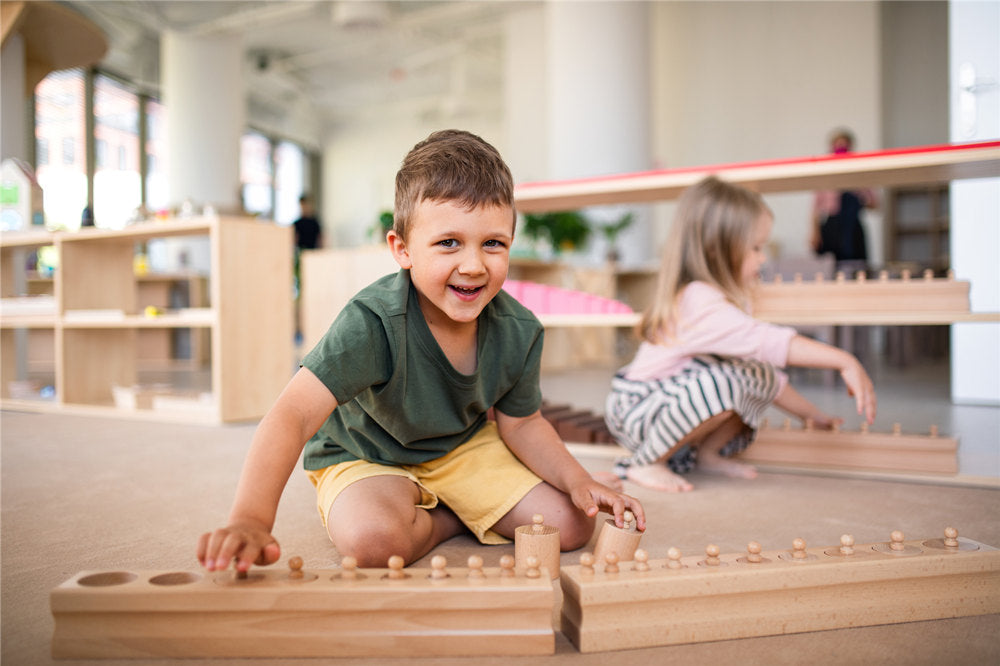
For one thing, the Montessori approach helps children develop independence and self-confidence. By giving children the freedom to explore and learn independently, parents can help them develop a sense of autonomy and a belief in their own abilities.
The Montessori philosophy also emphasizes respect for the child. By treating children with respect and kindness, parents can help build strong, positive relationships with their children that will last a lifetime--a gift that defines who we are as parents.
Furthermore, the Montessori approach can help children develop a love of learning that will serve them well throughout their lives. Parents can encourage their children to become lifelong learners who constantly seek out new knowledge and experiences by fostering curiosity and a desire to explore.
Studies Comparing Montessori and Public Education Methods
If you wonder why some parents are such die-hard proponents of the Montessori Method, check out the studies comparing kids who have benefited from Montessori education.
One study in 2019 evaluated 201 students in Switzerland aged four to thirteen. Half of them attended public schools, and the other half attended private Montessori schools.
The evaluation tested language, math, well-being, convergent and divergent creativity tasks, and working memory, finding that Montessori students scored better than their traditionally schooled peers (source).
Another study done on 141 preschool students in America (half in Montessori preschools and half in other schools) conducted four tests on cognitive and socio-economic measures for each participant over three years (3-6 years old).
It found that Montessori preschoolers fared much better academically, socially, and in liking school overall. Moreover, by age four, Montessori preschoolers scored higher in executive function than those in normal preschools.
Perhaps the most exciting finding of this 2017 study was that Montessori-style preschools might close the socio-economic gap, meaning that low-income preschoolers had a steeper increase in function and ability during their years at a Montessori preschool (source). They caught up to their peers!
How to Make the Montessori Philosophy Work for You
Most parents will likely agree that the principles of Montessori education are excellent for raising well-rounded individuals. But the Montessori philosophy is not limited to a classroom setting--it can be the bedrock of a parent's parenting philosophy, too!
So, how can busy parents make the Montessori philosophy work in their own homes? Here are a few tips to get you started:
Tip |
Explanation |
Create a Montessori-inspired play area |
|
Encourage child-led learning |
|
Incorporate practical life skills into your daily routine |
|
Create a calm and peaceful home environment |
|
Not sure what your baby or toddler should be able to do when? Check out this article to figure it out: Early Childhood Skills and Montessori Education: What You Should Know.
Alternative Methods: Waldorf vs. Montessori Education
Both the Montessori and Waldorf methods are known for their unique approaches to education and their emphasis on child-centered learning. However, you should be aware of some key differences between these two methods when choosing an educational approach for your child.
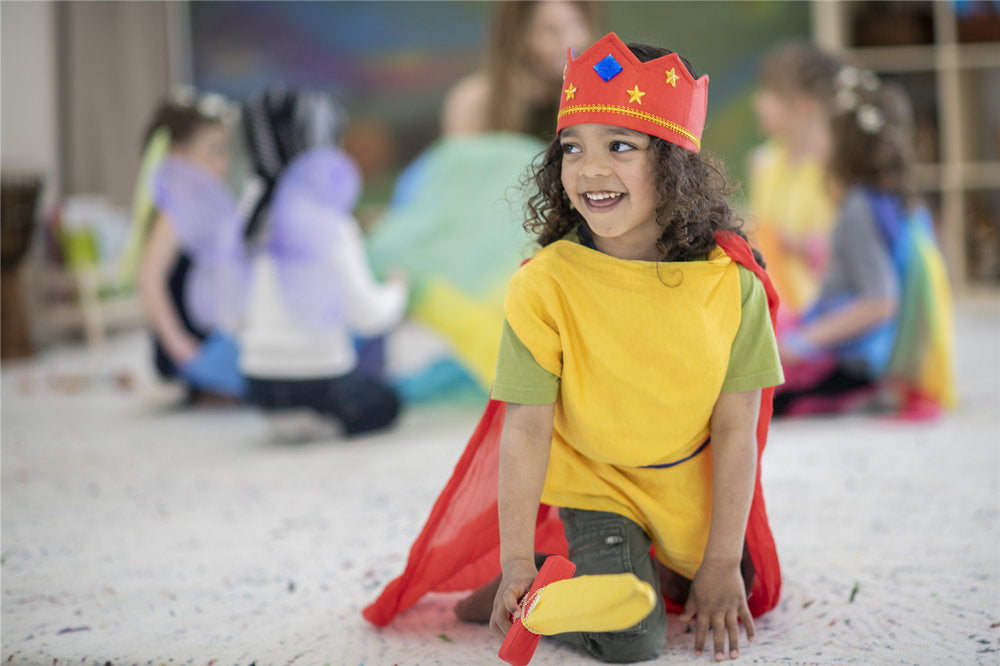
Like Montessori education, Waldorf education was founded in the early 20th century. Its founder, Rudolf Steiner, was a well-known artist and scientist known for saying, "The need for imagination, a sense of truth, and a feeling of responsibility--these are the three forces which are the very nerve of education" (source).
Waldorf schools focus on helping their students "experience" academic subjects rather than reading about and testing them. Waldorf students go through academically rigorous yet developmentally appropriate education through experiences in the arts, writing, literature, math, science, and beyond (source).
Similarly to Montessori education, Waldorf education advocates for freedom in education and independent learning. Let's take a look at the differences:
Curriculum
The Montessori method emphasizes practical life skills, sensory exploration, and self-directed learning, with a focus on academic subjects like math and language.
On the other hand, the Waldorf method emphasizes creativity, imagination, and artistic expression, with a curriculum that includes subjects like music, art, and storytelling.
That's the other thing: Waldorf education has a carefully planned syllabus designed around development milestones for each grade. The Montessori curriculum provides the prepared materials but otherwise lets the students learn at their own pace.
Classroom Environment
Montessori classrooms are typically designed to be orderly and functional, with a wide range of materials and activities set up for children to explore and learn at their own pace.
Waldorf classrooms, on the other hand, are designed to be warm and nurturing, with a focus on creating a homelike environment that supports children's emotional and social development.
The Teacher's Role
In the Montessori method, teachers act as observers and facilitators, guiding children's learning and development without interfering in their exploration and discovery.
In the Waldorf method, teachers play a more active role in the classroom, leading activities and providing guidance and support to help children develop their creativity and imagination.
Technology
The use of technology is generally discouraged in the Waldorf method, with a focus on hands-on, experiential learning and a belief that technology can harm children's development.
In the Montessori method, teachers see technology as a tool they can use to support children's learning, although its use is generally limited. The idea in modern Montessori schools is that students must become adults able to function and work in today's day and age, so older students must be "tech literate," though young children don't.
Age Groups
Montessori classrooms typically include children of various ages, with older children acting as mentors and role models for younger children. This blending of ages in the classroom opens doors to unique social development opportunities across multiple ages.
In Waldorf classrooms, children are typically grouped by age, focusing on meeting each child's developmental needs at each stage of their development. Segmenting students by age allows for more straightforward academic expectations.
In a Nutshell
The Montessori philosophy is a powerful tool for parents wanting to help their children develop independence, self-confidence, and a love of learning. By creating a Montessori-inspired home environment and following your child's lead, you can help your child become a lifelong learner who is curious, creative, and self-assured.
If you feel drawn to the Waldorf method, look for a Waldorf school near you. Implementing Waldorf education at home will take more attention and effort on your part, but it is doable!






